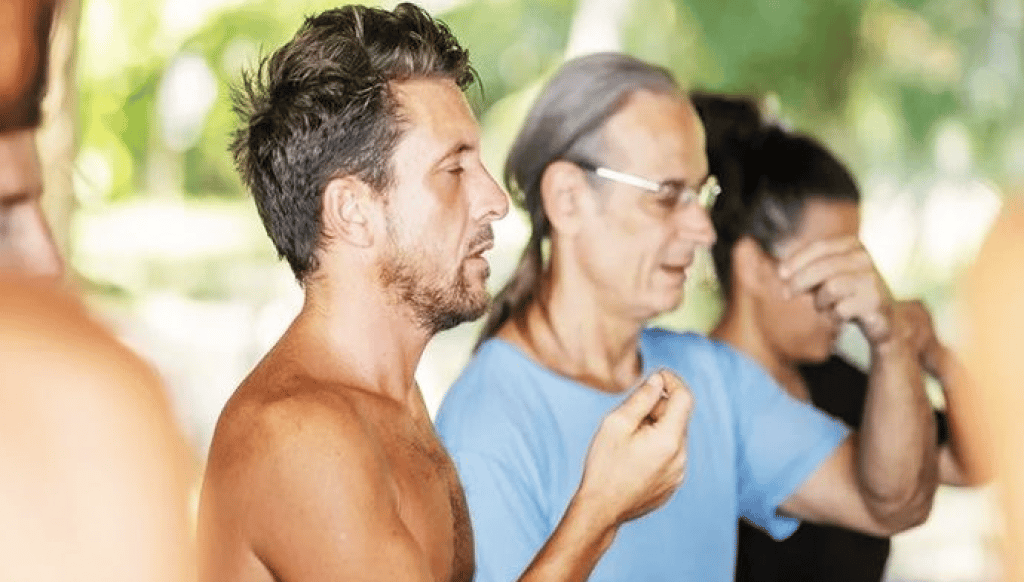As breathing instructors, we have the privilege and responsibility of guiding others through powerful and transformative experiences. While breathwork instructor training can be deeply rewarding, it can also be physically and mentally demanding. It is important for us to prioritize self-care and self-compassion in order to effectively care for ourselves and our students.
What is Self-Care?
Self-care refers to the actions we take to maintain our physical, mental, and emotional well-being. It is about taking the time to nourish ourselves and tend to our needs, rather than constantly putting the needs of others first.
There are many different self-care practices that can be beneficial for breathwork instructors, including:
- Exercise and physical activity
- Adequate rest and sleep
- Nutritious diet and hydration
- Relaxation techniques such as meditation or yoga
- Time spent in nature
- Hobbies and creative pursuits
- Boundary setting and saying no to commitments that exceed our capacity
It is important to experiment and find what self-care practices work best for you, as everyone is different. The key is to make self-care a regular part of your routine and prioritize it as you would any other important task.
The Importance of Self-Care for Breathwork Instructors
Leading breathwork sessions can be physically and mentally demanding, as we are often holding space for others to process and release strong emotions. It is important to take care of ourselves in order to avoid burnout and maintain our own well-being.
Self-care is also important for the quality of the work we do with our students. When we are well-rested, nourished, and grounded, we are able to hold a stronger and more present container for our students. This allows for a deeper and more transformative experience for both ourselves and our students.

What is Self-Compassion?
Self-compassion is the act of being kind and understanding towards ourselves, especially during difficult times. It involves acknowledging our own suffering and offering ourselves the same care and understanding that we would offer a good friend.
Self-compassion has been shown to have numerous benefits, including increased well-being, decreased anxiety and depression, and increased resilience. It can also help us to be more understanding and compassionate towards others.
Practicing Self-Compassion as a Breathwork Instructor
As breathwork instructors, it is important to cultivate self-compassion in order to provide a safe and supportive environment for our students. Here are some tips for practicing self-compassion in daily life:
- Be kind to yourself: Treat yourself with the same kindness and understanding that you would offer a good friend.
- Acknowledge your suffering: It is normal to experience difficult emotions and it is important to recognize and validate our own suffering.
- Practice self-kindness: Rather than beating ourselves up for our perceived shortcomings, try to speak to ourselves with kindness and understanding.
- Remember that imperfection is part of the human experience: We all make mistakes and have flaws. It is important to recognize that this is a normal part of the human experience and to offer ourselves compassion rather than judgment.
Incorporating self-compassion into our work as breathwork instructors can also create a safer and more supportive environment for our students. By modelling self-compassion, we can help our students to cultivate this important skill in their own lives.
As breathwork instructors, it is important to prioritize self-care and self-compassion in order to effectively care for ourselves and our students. Self-care involves taking the time to nourish ourselves and tend to our needs, while self-compassion involves being kind and understanding towards ourselves, especially during difficult times.
By practicing self-care and self-compassion, we can avoid burnout, maintain our own well-being, and provide a stronger and more present container for our students. This allows for a deeper and more transformative experience for both ourselves and our students.
Incorporating self-care and self-compassion into our work as breathwork instructors can also help to create a safer and more supportive environment for our students. By modeling these practices, we can help our students to cultivate self-care and self-compassion in their own lives.
It is important to make self-care and self-compassion a regular part of our routine and to prioritize them as we would any other important task. By taking care of ourselves, we can better serve and support our students on their own journeys of transformation.
Conclusion
In conclusion, self-care and self-compassion are essential for the well-being and effectiveness of breathwork instructors. By prioritizing these practices, we can avoid burnout, maintain our own well-being, and provide a stronger and more supportive environment for our students.
It is important to remember that self-care and self-compassion are ongoing practices and not just one-time events. By making them a regular part of our routine, we can better serve and support our students on their own journeys of transformation.
As breathwork instructors, we have the privilege and responsibility of guiding others through powerful and transformative experiences. By taking care of ourselves and practicing self-compassion, we can more fully embody this role and make a positive impact on the lives of those we serve.

